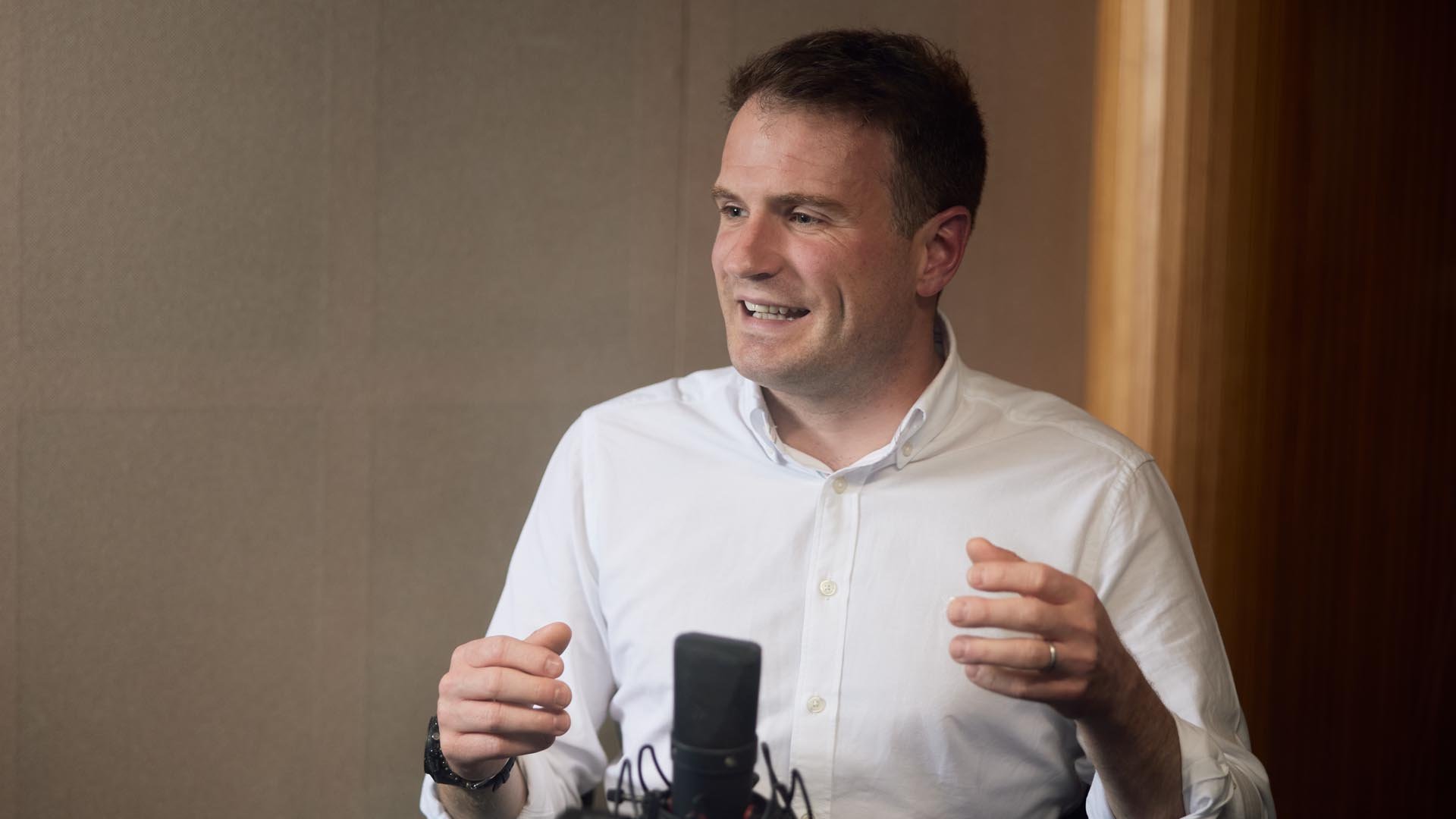Key Points
- We humans aren’t wired for sudden change caused by events outside our control
- Investment managers must get better at anticipating disruption by asking ‘what if…?’ questions
- The culture of companies such as Amazon, Ginkgo Bioworks and Zipline allows them to adapt their skills to where the opportunity is greatest

Please remember that the value of an investment can fall and you may not get back the amount invested.
Cast your mind back to being told you couldn’t see friends or family because of Covid, or to a time your travel plans were disrupted because a plane was cancelled at the last minute.
Such situations upset us because our brains are wired to cope with slow, predictable change. It’s no wonder we’re so disturbed by sudden circumstances beyond our control.
That’s how Kirsty Gibson, joint manager of both the Baillie Gifford US Growth Trust and American Fund, explains the anxiety about prospects for growth investors in these turbulent times. We humans prefer structure and, ultimately, control.
Gibson is aware of the how uncomfortable market volatility can be for many investors. But she nevertheless believes that unpredictability is something we must learn to accept – or even embrace.
“The past year has been a very uncomfortable time to be a growth investor but it’s also a very exciting time to be one.”
“We’ve had a lot of questions about bubbles and overheating and growth-versus-value, questions that are well-founded. But these questions reflect the idea of the human need to believe that change should be incremental and that we’re heading to a period of stasis, where all that change is bedded down and we can begin to relax into a new normality. But what if we are just at the tip of the iceberg of change?”
Imaginative leaps
For Gibson and colleagues, the job of an investor seeking companies capable of outsize returns in turbulent times is to stop hoping for steady incremental growth. Nor should they draw over-simple analogies from what happened with previous disruptive businesses.
Instead, she advocates “opening your mind to the possibility of what a business can become and what it can achieve, which is often very different to what it is doing today.”
Making that imaginative leap requires us to work against another hard-wired human instinct: the tendency to structure the world around us according to familiar patterns that help us feel more in control.
“We need to break out of that and think about things in a completely different way. While we have to accept we can’t predict the future, that doesn’t mean we can’t hypothesise about it.”
For Gibson and her team, framing the ‘what if…?’ questions should be central to a growth investor’s job. Another is finding the businesses that can exploit new the realities of a rapidly changing world.
“The key characteristic to look for in a great growth business is adaptability: the ability of a management team to alter their path to navigate different situations.”
That, she argues, often comes down to leadership qualities.
“Most companies where you have a really strong founder leader are much more capable of adapting. One example is Ginkgo Bioworks, led by Jason Kelly. When we first invested in Ginkgo it was a private company aiming to put the tools of biology into human hands and was focused on the flavour and fragrance industries.”
“Now six or seven years later, the now-listed company is active in agriculture and pharmaceuticals, monitoring for pathogens such as Covid. The management team has adapted and the business has evolved as the opportunity set has grown.”
Staying ready for change
Amazon is a better-known example Gibson uses to illustrate the difficulty of envisaging future breakthroughs. Its origins as an online bookstore gave few clues that it would eventually earn such a large part of its revenue from Amazon Web Services (AWS), a cloud computing platform. But the organisation’s culture enabled it to keep pace with the sudden shifts that cloud technology enabled, a capability based on the experiences and attitudes of its founders.
That culture encouraged Gibson and colleagues to build a strong conviction in the company’s ability to defy the usual step-by-step path to development and take bold, transformative decisions as the opportunity arose.
Another company showing the benefit of embracing uncertainty is Zipline, the drone delivery service that’s helping to transform the logistics industry.
The San Francisco-based company is re-imagining what is possible in ‘last mile’ logistics, getting goods and services into the hands of the customer – or patient. Zipline is also making great progress in its social goals, having started in Rwanda delivering blood and medicine to remote locations. So far it has delivered over a million Covid vaccines in Rwanda and Ghana and enabled people in rural parts of Africa to access vaccinations.
Now Zipline’s automated delivery system is the largest in the world, having made over 300,000 commercial flights, logging more than 20 million miles of autonomous flights with no incidences of injury.
Zipline now operates on three continents and is running a commercial trial in the US for Walmart, exciting customers by delivering groceries to their garden.
Gibson explains:
“There’s an opportunity there for them to expand into the grocery delivery in the US, and potentially in delivering pharmaceutical products as well. It’s really interesting that a business that has been highly successful in solving a logistics problem in emerging markets is bringing that learning back to the US.”
No straight lines
Who could have predicted that a technology refined for life-saving medical deliveries in the Rwandan highlands could be profitably applied to delivering toiletries, bagels and peanut butter to America’s backyards? That, says Gibson, is the point:
“It’s about understanding that plans are not full of straight lines, that they tend to zig and zag. It’s about opening your mind to the possibility of what a company can become and what it could achieve in the future, rather than looking at what it is today and extrapolating from there.”
It's also about building conviction in the founders and leaders of the businesses we invest in, and trusting that, when a fork in the road appears, their foundational beliefs and experiences will lead them on the right path.
Words by Colin Donald.
Hear more from Kirsty Gibson by listening to the podcast at bailliegifford.com/podcasts
Important information and risk factors
Investments with exposure to overseas securities can be affected by changing stock market conditions and currency rates. Investments with exposure to a single market may increase risk. The Trust’s risk could be increased by its investment in private companies. These assets may be more difficult to sell, so changes in their prices may be greater.
The views expressed in this article should not be considered as advice or a recommendation to buy, sell or hold a particular investment. The article contains information and opinion on investments that does not constitute independent investment research, and is therefore not subject to the protections afforded to independent research.
Some of the views expressed are not necessarily those of Baillie Gifford. Investment markets and conditions can change rapidly, therefore the views expressed should not be taken as statements of fact nor should reliance be placed on them when making investment decisions.
Baillie Gifford & Co Limited is wholly owned by Baillie Gifford & Co. Both companies are authorised and regulated by the Financial Conduct Authority and are based at: Calton Square, 1 Greenside Row, Edinburgh EH1 3AN.
The investment trusts managed by Baillie Gifford & Co Limited are listed on the London Stock Exchange and are not authorised or regulated by the Financial Conduct Authority. Baillie Gifford & Co Limited is an Authorised Corporate Director of OEICs.
A Key Information Document is available by visiting bailliegifford.com
26472 10016191




